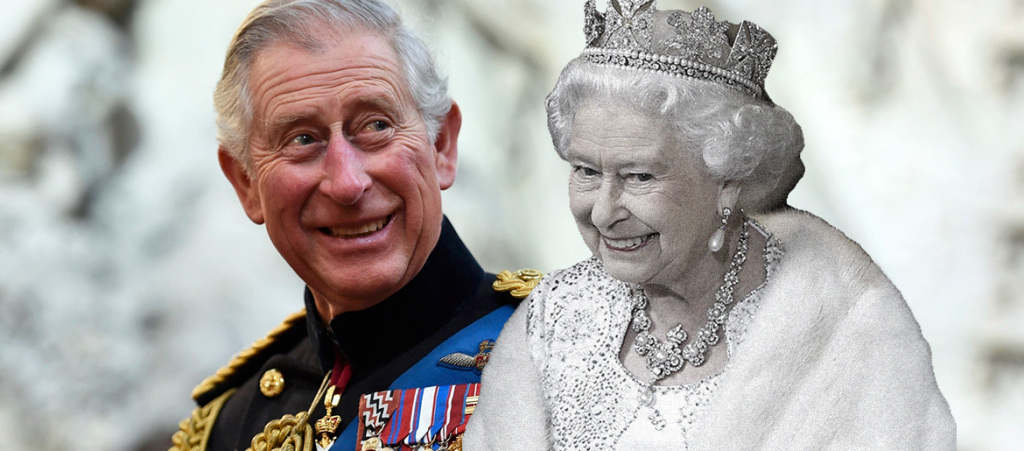
Queen Elizabeth II is dead. How you feel about that will depending on your personal thoughts about the British monarchy and the devastating impacts of its colonisation (for transparency, we’re not royalists at Zee Feed). But having a lot of questions about what this means for Australia seems to be a universal experience. We’ve answered some of the most pressing questions below, click to skip to:
- When does Charles become King?
- When does Australian currency change?
- Which countries are leaving the Commonwealth?
- Will Australia become a republic? When?
- Is this the beginning of the end for the British monarchy?
When does Charles officially become King?
Even though there has been no official coronation ceremony yet, Charles is now officially King Charles III. The coronation won’t happen for months still, to allow for an appropriate time to mourn the Queen. The Queen’s own coronation on June 2nd, 1953, was 16 months after her father’s death – so Charles should probably expect a long wait too.
That might not be such a bad thing, as King Charles III will begin his reign at a very uncertain time for Great Britain and the world. A grand coronation ceremony might not be received well by a nation that is still trying to establish its position in the world in the aftermath of Brexit and is currently in a devastating cost of living and energy crisis. Not to mention the impacts of the ongoing war in Ukraine.
It doesn’t help that Charles is probably the least popular of all the royals with the Princess Diana scandal following him and Netflix show The Crown not doing any favours for his public perception. He’ll have a hard time being welcomed by his younger constituents, as a 2021 YouGov survey indicated that at least 41% of people aged 18 to 24 would prefer an elected head of the state (compared to 31% who wanted a king or a queen).
Interesting side note: Charles becoming King also means that Elizabeth II will have been the last Queen of England for the next 100 years. Prince William will succeed his father, then his son Prince George is next in line. A sad day for girlboss-colonisers!
@novaramedia While Elizabeth II came to the throne in a moment of optimism and hope, Charles III seems to have inherited a country in national decline argues Ash Sarkar. #ukpolitics #queen #costoflivingcrisis ♬ original sound – Novara Media
What happens with Australian currency now?
A portrait of Queen Elizabeth II appears on every single Australian coin and the $5 note. Now that she has died, new coins and note with King Charles III’s face will need to be designed – this is called an effigy. The new currency will be in circulation from 2023.
Coins and notes featuring the Queen can still be used and are considered legal tender, they will just slowly disappear over time.
Fun fact: because Queen Elizabeth II faced right on our coins, King Charles III will face left. This tradition dates back to the 1600s, dictating that each new King or Queen must alternate their faces’ direction.
— Rachel Withers (@rachelrwithers) September 8, 2022
Who is leaving the Commonwealth?
There has been a growing republican movement in many of the countries part of the “Commonwealth realm” – countries that still recognise the British monarch as their head of state. Fifteen countries have retained the British monarch as their head of state, including Australia, Canada and New Zealand. But not everyone continues to see value in the monarchy.
Those currently in the process of separating from the monarchy include:
- Barbados: The nation is the most recent country to leave the Commonwealth in November, 2021, stating “the time has come to fully leave our colonial past behind”.
- Jamaica: Many Caribbean countries have taken inspiration from Barbados to separate from the monarchy. They want to cut all ties with their former empire which had enslaved and tortured their ancestors. Jamaican Prime Minister Andrew Holness announced in March 2022 that the country intends to become fully independent of the monarchy.
- Belize: Belize signalled its intention to remove the Queen as its head of state during Prince William and Kate’s Caribbean tour earlier this year. The Prime Minister announced it would be a part of their “decolonisation process”.
- The Bahamas: The Bahamas has indicated that it would like to become a republic (but may still remain part of the Commonwealth).
Will Australia become a republic?
Queen Elizabeth’s death has often been talked about as the future trigger for Australia to become a republic – now that the moment is here, it will be up for discussion (and probably a vote) in the next three to four years.
The Labor party is very keen to untangle Australia from the British monarchy and instate an Australia head of state to become a republic. It was one of the items on their 2021 National Platform (basically a list of their priorities and intentions) – as part of their plan to reforming and improve our democratic institutions, the party “supports and will work toward establishing an Australian republic with an Australian head of state.”
In a way, the small first steps towards that goal have already begun. After winning the election, Anthony Albanese appointed NSW MP Matt Thistlethwaite as the Assistant Minister for the Republic – the first time such a role has existed. Thistlethwaite’s role is to educate the public about the constitutional arrangements we currently have with the British monarchy, what an Australian Republic could look like, and eventually outlining a plan for that transition.
This will not happen in Labor’s first term of government, though. Both Albanese and Thistlethwaite have been clear that a republic referendum would only take place if Labor wins re-election in 2025. The only referendum that will take place in the next three years will be the vote on an Indigenous Voice to Parliament.
The last time this was seriously on the table was in 1999. Asked if we should become a republic, approximately 55% of the public voted no and 45% voted yes. Malcolm Turnbull actually led the Yes campaign, and while he was Prime Minister he removed the portrait of the Queen from his office (FWIW, Scott Morrison is a monarchist and hung it back up when he took over).
In January 2022, a Resolve Political Monitor poll found that 54% of people would vote yes. Of course, polls are not predictive. Most polls since 1999 have shown more people support a republic than not, but the main issue is the specific model proposed.
The 1999 referendum proposed that the President of Australia would be appointed by the Parliament – many voters said they would prefer the people to vote for the President (similar to the U.S.) This time around, the Australian Republican Movement led by Peter FitzSimons is campaigning for what they are calling an ‘Australian Choice Model’. Federal, state and territory Parliaments would nominate a shortlist of candidates, and the public would vote for one of these to become Head of State.
The short version of all this – Australia will become a republic at some point, but the referendum would only take place in 2025 or 2026 at the absolute earliest.
It’s important to note that becoming a republic doesn’t not mean we have to leave the Commonwealth. Other republics are still part of the Commonwealth – it’s an entirely separate question. In our opinion, Australia would very likely remain a member of the alliance.
👑Prince Charles was reportedly successful in pushing Margaret Thatcher to spend taxpayer dollars on a £3.5 million environmental scheme, intensifying concerns about his tendencies to lobby political decision makers.https://t.co/1SMsI8rmcw #AusRepublic #AusPol
— Australian Republic Movement (@AusRepublic) August 15, 2022
Could this be the end of the Monarchy?
Ah, the $28 billion question. Ultimately, if all 15 realms currently under the British monarchy became republics, the Royal Family would only be left ‘ruling’ over the U.K (England, Wales, Scotland, and Northern Ireland). Sentiment within the U.K is shifting. A declining number of Scottish voters want to keep the monarch, and the country looks like it may be headed for a second independence referendum in the next few years; and in Wales, the transfer of the ‘Prince of Wales’ title from Charles to William sparked a petition to end the title as it has been “held exclusively by Englishmen as a symbol of dominance over Wales”. As Charles visited Northern Ireland very often while he was the prince, the country is more receptive to his reign than Scotland and Wales – reports show most people are either supportive or indifferent.
And at the end of the day, even if Scotland, Northern Ireland and Wales all left the kingdom, Charles & Co. would remain the royals of England. Even though there is very little support for the monarchy among young people in England, we think it’s quite unlikely the country would oust them. Many other countries currently have a monarch as their Head of State ( including Denmark, Spain, Saudi Arabia, Japan) and the power of nostalgia, tradition and legacy is strong.
From a country like Australia, where we’ve never had a monarch or royal family of our own, it’s difficult to even grasp what they mean for national identity.
Under King Charles (or maybe later under William), it is possible the U.K. could restructure their form of government to make the King’s role even more ceremonial and removed. In terms of relevance and influence – the only real power they have outside the U.K. – the British monarchy will fade fast in this post-Lizzie era.




Comments are closed.